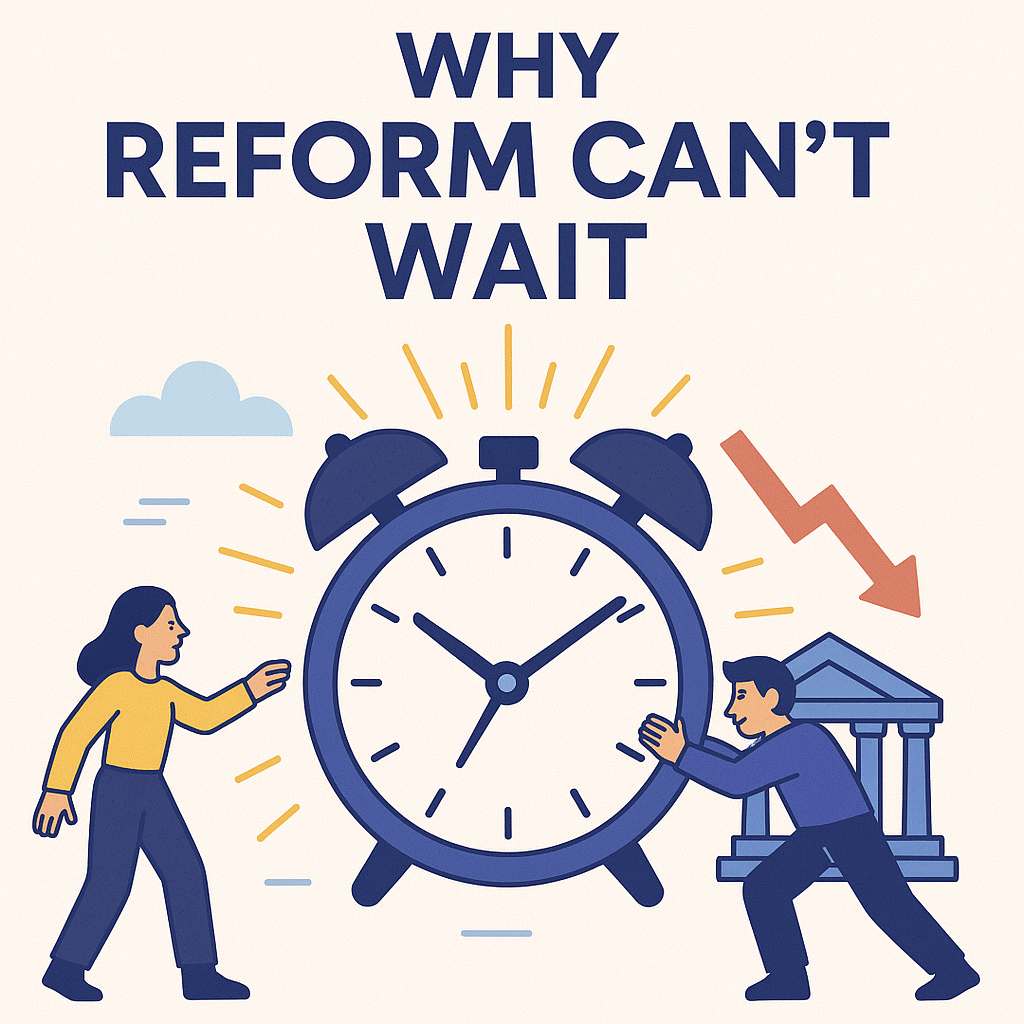Why Reform Is Needed
“Justice cannot be for one side alone, but must be for both.” — Eleanor Roosevelt
Reform is not about tearing down systems; it’s about improving them so they live up to their promises. In every society, institutions are built to serve people. Yet over time, they can become outdated, rigid, or misaligned with the needs of the communities they were created to protect. This is why reform is not optional — it is necessary.
Systems That Evolve With People
Communities grow, cultures shift, and expectations change. When institutions remain static, they risk becoming disconnected from the very people they exist to serve.
Reform ensures that systems evolve with society. It adapts laws, policies, and practices to reflect current realities. Without reform, outdated structures linger, and what once seemed effective can become harmful or unjust.
Correcting What’s Broken
Every system is prone to error. Mistakes happen. Misjudgments occur. But when those errors aren’t acknowledged or corrected, they turn into patterns.
Reform is how we identify weaknesses and make necessary changes before problems become too entrenched. It’s the difference between a system that clings to tradition and one that learns, grows, and improves.
Building Fairness and Equality
Justice without fairness is an illusion. Too often, marginalized groups feel the weight of unequal systems. Reform is not about offering special treatment — it is about ensuring everyone is treated equally under the law.
By addressing disparities, reform levels the playing field. It creates conditions where fairness is not aspirational but achievable.
Strengthening Public Trust
When people feel that systems are failing, trust erodes. And without trust, communities disengage.
Reform sends a powerful message: we see the flaws, and we are committed to fixing them. That willingness to change builds confidence, signaling that institutions are responsive to the people they serve.
Preventing Future Injustice
Reform is not just about fixing today’s problems; it is also about safeguarding tomorrow. By learning from past mistakes, societies can put protections in place that make future injustices less likely.
This forward-looking approach ensures that reforms are not band-aid solutions but long-term commitments to justice.
The Ongoing Work of Justice
Reform is not a one-time event. It is an ongoing process — a cycle of listening, learning, and improving. Systems that embrace reform are not weak; they are strong, because they are willing to change in the pursuit of fairness.
True justice requires humility. It requires acknowledging that no system is perfect. And it requires the courage to make changes when those imperfections become clear.
Conclusion
Reform is needed because people deserve systems that are fair, responsive, and accountable. It is about aligning institutions with the values they claim to uphold.
At Frame Journalism, we believe that reform begins with awareness. By framing stories clearly and truthfully, we can spark the conversations that lead to meaningful change. Because justice is not static — it grows stronger every time we choose to improve it.

Leave a Reply